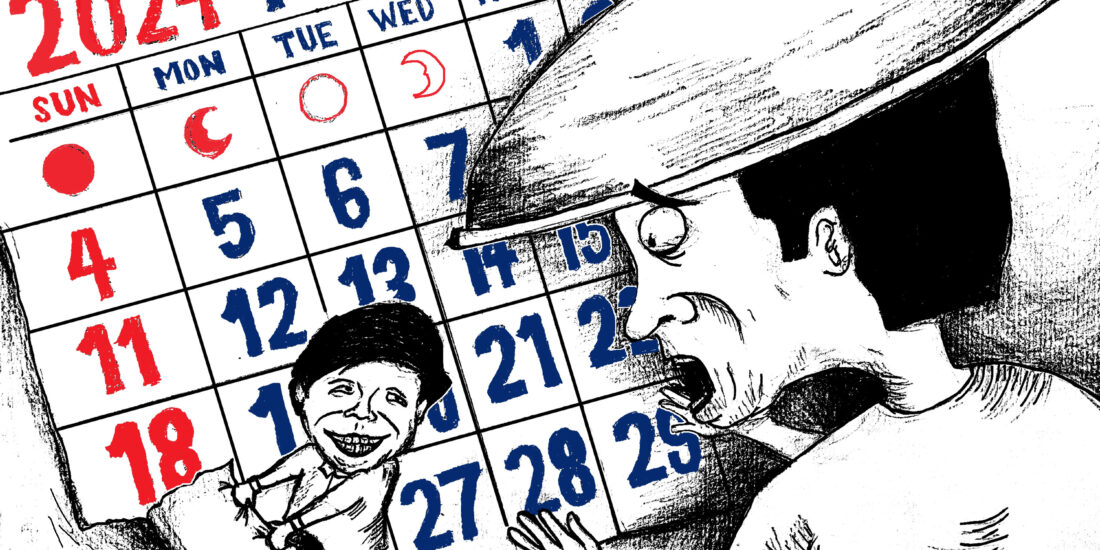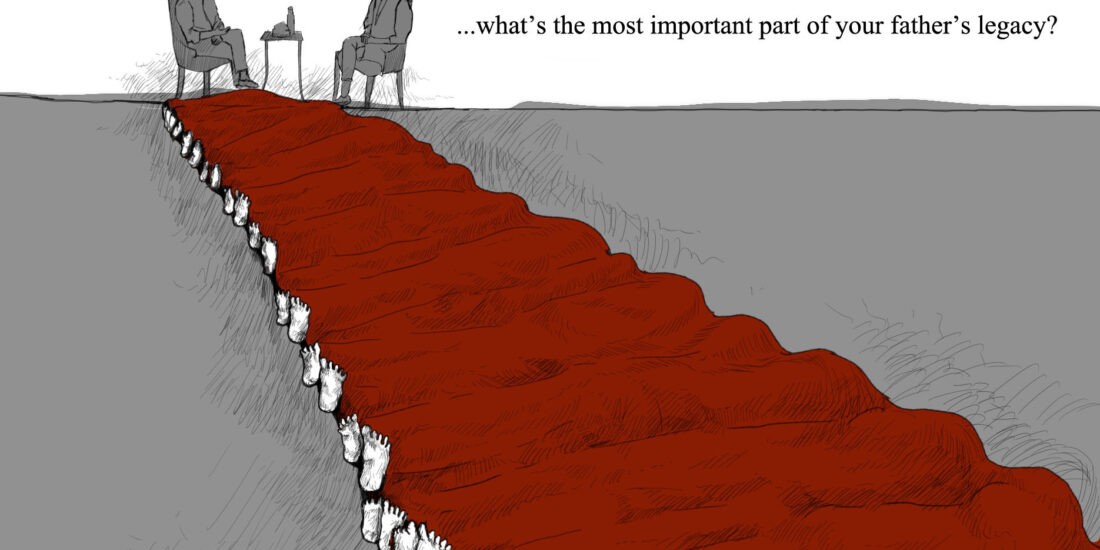Pagsambang Bayan: The Past, Present, and Play
Its sound emerged in the darkness one by one—scarred voices of different entities with a unifying tone. They desperately cried for freedom—the workers, farmers, indigenous people, peasants, and youth,—as they remain unheard and voiceless behind the system.
With the risk of a nationwide Martial law under the Duterte administration, playwright Bonifacio Ilagan was compelled to revive his notable play, the Liturgy of the Masses (Pagsambang Bayan), into a musical. First staged in 1977 at the University of the Philippines amid Marcos’ dictatorship, the play turned musical is now performed in several schools to enlighten the youth and reminisce the victims of the two bloody regimes.
History upside down
Commencing with a bang, the fire shots lingered on stage as the reenacted Martial law echoed the cries of its victims. The dramatization of Ferdinand Marcos and President Rodrigo Duterte’s regime trembled the audience from their seats. With the artistic direction of Joel Lamangan, the Ang Tag-ani Performing Arts Society gave justice to the play.
None of the characters was named, for they collectively personified a congregation of people addressing social issues and reminiscing the dark past. The variety of the original songs by composers Jed Balsamo and Lucien Letaba used in the musical play enveloped from solemn to pop rock genre, as well as some notable Filipino songs that seemed familiar to the audience.
The unrestrained musical mirrored the narrative between Marcos’ and Duterte’s regime. The dictatorial ruling which aroused the violations of human rights and the evident injustice in our society has once again resurfaced in the current socio-political condition. As the musical has come into being, resistance and speaking up are the measures needed to prevent the persistent extrajudicial killings, human rights violation, and the Marcoses’ comeback to power.
Reviving the truth
“There is an obvious and bare-faced attempt to revise history,” Ilagan reasoned out behind the revival of his play. The playwright has made humble efforts, through reaching out to the youth and the common people as well as to fight against the government and the administration for they facilitate the possible comeback of Martial law and the Marcoses.
Ilagan showed his worries that people would forget about the impetuous regime on the Marcosian era, as several decades have passed. The musical play was specifically directed to the youth as they are the ones who will bear the future and be held responsible on imparting and handing down the lessons of the past in the next generations.
He believes that the people should make the religious and moral leaders speak up because “prayers should become a reality” if it aims to join the struggle of the marginalized. Despite the looming threat of a tyrannical comeback, Ilagan still believes that “there’s hope for so long as our people would get united.” To be silent and still amid detrimental situations of those who are oppressed and marginalized tolerates the perpetrators in tainting their hands with the masses’ blood.
***
Despite limited accessibility of the venue, the contemporary theater is still a great medium of protest; and Pagsambang Bayan The Musical has delivered the urgent message: the vitality of history and truth. Those who are oppressed should not be deprived of their rights to fight against the injustices, for Ilagan believes that “the big things came from the small things and the strong was once weak and that’s the way our history has always been.”





